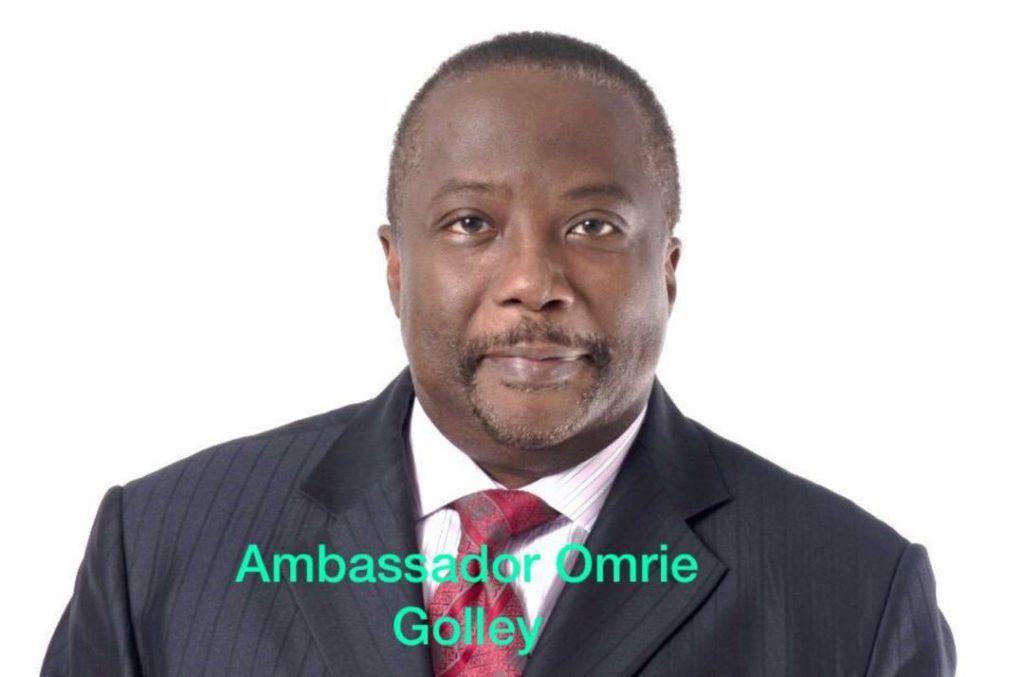“Since the signing of the Accord, I have been most concerned with the pace and the direction of the peace process, particularly regarding disarmament and demobilization, about the showing of remorse, and pursuing positive acts of reconciliation and rehabilitation, in favour of the people of Sierra Leone – particularly those who have suffered from the prosecution of the devastating nine year old war, and most particularly in respect of recent human rights abuses being perpetrated against innocent civilians.”
Culled from the News Archives of the Sierra Leone Web – 28th December 1999
Ambassador Golley also issued a written Press Release announcing his resignation from the Movement.
This move by Golley did not apparently sit very well with the leadership of the RUF, because that very day, a few hours after the dissemination of the statement of Ambassador Golley regarding his resignation, a terse statement was issued by the newly nomenclatured RUF Spokesman and Publicity Secretary, Eldred Collins, which simply stated:
“Former RUF Spokesman, Omrie Michael Golley, is no more Spokesman, Legal Representative of the RUF, and is no more empowered to collect funds for and on behalf of the RUFP”.
When further questioned on National Radio, on the evening of the 28th December 1999, as to the reasons why the Press Release issued earlier, referred to collecting funds on behalf of the RUF, the leader of the RUF Foday Sankoh stated that Ambassador Golley had been traversing the world, obtaining millions (without specifying the currency or denomination ), and converting these monies to his own personal use.

In a subsequent radio interview the following morning, 29th December 1999, and conducted by the same station that had earlier interviewed the RUF Leader, Ambassador Golley, denied the accusations leveled against him by the RUF Leader, further stating that he had never been remunerated or paid, in any shape or form, either directly or indirectly, for his work as legal representative and Spokesman for the RUF.
Despite the seriousness of the accusations raised against Ambassador Golley by the RUF Leader, he (Golley), in response to these accusations went on to inform the interviewer, in a rather jocular fashion, further retorting, that if he had compiled professional billable hours as a lawyer, for the length of time he had legally advised the Movement, that the RUF would be unable to pay his fees and would have become bankrupt.
Barely six months after the departure of Ambassador Golley from the RUF, the Freetown residence of their Leader, Foday Sankoh was stormed by the civilian population in the previously referred to May 8 incident, which lead to deaths and injuries in the Sierra Leone Capital. Sankoh fled to the hills and was subsequently captured and detained.
Tensions between the parties to the conflict continued into the dawn of the new millennium, and the peace process in Sierra Leone in January 2000, remained fragile.
Accusations and counter accusations continued amongst the main parties to the earlier conflict. The new dispensation in the governance of the country, which the Lome Peace Accord had occasioned, had not resulted in the much yearned for peace and recovery.
By May 2000, the peace process had broken down with the storming of the residence of the RUF Leader.
Little did Ambassador Golley know that he would be prevailed upon again, to return to his motherland in early 2001 to help restart the peace process which had irretrievably broken-down.
It is worthy to note that this episode brings us almost full circle to the amazing story of the role of Ambassador Omrie Golley in the peace process of his country, a story which we commenced, in Episode 1 of our narrative – fast forwarding to the year 2001, with the fateful meeting between the erstwhile Special Representative of the Secretary-General of the United Nations, Ambassador Oluyemi Adeniji, and Ambassador Omrie Golley.

